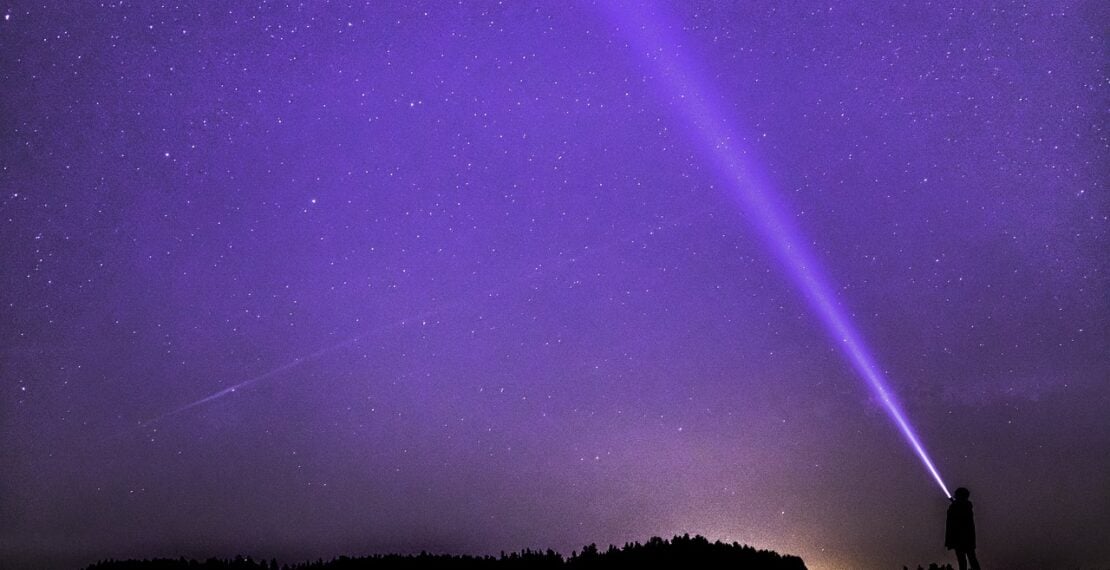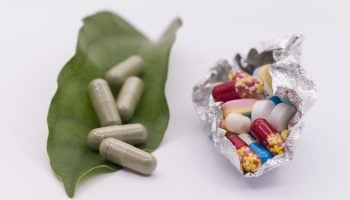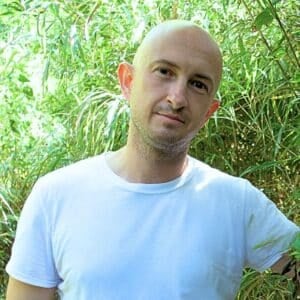Depression, despite affecting millions worldwide, is still a condition that we don’t fully understand.
In fact, we understand it so poorly that typical pharmaceutical treatments indiscriminately target whole neurochemical systems, resulting in unstable effectiveness and a host of side-effects.
Up to 44% of people suffering from depression have not found relief from typical antidepressant therapies. Even patients who find some form of relief from the usual prescribed antidepressants need frequent doses, sometimes causing unpleasant side-effects, and these drugs often lose their effectiveness after several years of treatment.
But where pharmaceuticals are failing, psychedelics could be a new hope.
The Trip Treatment
Recent large studies, using psychedelics such as psilocybin mushrooms, have shown that a single moderate dose of these substances can significantly reduce depression scores in patients with treatment-resistant depression. The antidepressant effect of psychedelics also last much longer than typical treatments, with reduced depression scores maintained for several months after treatment.
A big part of the reason that psychedelics appear to be so effective at treating depression is due to their ability to induce a ‘mystical’ experience. Participants who describe a highly spiritual or personally meaningful experience with psilocybin were more likely to have reductions in depression scores, according to one study – and the strength of the mystical experience has also been directly linked to psychedelics’ anti-addiction effects.
It appears that there’s something special about having a transcendental encounter during treatment. Linking this powerful effect of psychedelics to their mechanisms of action in the brain is helping scientists start to piece together the way that depression works, and potentially the best ways of treating it.
A recent review, from psychedelic icons Dr. Robin Carhart-Harris and Professor David Nutt, presents a new, all-encompassing model of depression, that explains how both typical antidepressants and psychedelic therapies could help treat depression in different ways.
Listen to find out How Psychedelics Can Help You Find Fulfilment In Life featuring Kim Iglinsky or Click here to read the transcript
Joint Therapy
Their ‘bipartite’ model of serotonin signalling proposes that depression can be most effectively treated through two receptor systems – the 5-HT1A and the 5-HT2A receptors.
The authors’ theory is that the 5-HT1A system of the brain is generally in charge of regulating anxiety during normal consciousness. This is the receptor system that typical SSRI medications work through – reducing levels of anxiety directly.
This is the system that deals with “passive coping.”
However, when people start to experience abnormally high levels of stress (such as in cases of severe depression), the brain’s 5-HT2A system takes over, and starts to change the receptivity of the brain. In other words, it makes the brain more flexible to change, and makes us more sensitive to the environment.
This is the system that deals with “active coping.” It’s the receptor system that psychedelics activate – and this explains a lot about their effects.
The activation of the 5-HT2A system can backfire – if we’re in a highly dangerous or stressful environment, while also suffering the stress-inducing effects of severe depression, the activation of the 5-HT2A system can amplify our anxiety and make things worse. This explains why people can have traumatic psychedelic experiences if they’re not in the right setting, or receiving the proper guidance.
However, activation of 5-HT2A receptors can also produce the most significant changes in people’s cognition, helping them address serious problems in their life in a unique form of self-therapy. This has been observed in participants of clinical trials into the effectiveness of psychedelic therapy, who report the most significant benefits after experiencing major personality changes.
The overall theory, state the authors of the review, is that the brain has two mechanisms in reacting to depression. Firstly, the brain’s 5-HT1A system tries to address feelings of anxiety. When this becomes too much, and the brain faces too much stress, the 5-HT2A system takes over, and tries to change the way the brain responds to the world in a more dramatic way.
Therefore, the ideal therapy for depression could be a combination of 5-HT1A activation (to help people cope with anxiety as a first defense), followed by 5-HT2A activation (to help people adapt and heal).
It’s important to know that this is still just a theory. The authors acknowledge that this is an oversimplification of one of the most complicated neurotransmitter systems in the brain, and that the evidence isn’t yet complete. But this is arguably the most coherent model of depression that has been put forward so far.
Listen to our podcast episode with Brad Burge talking about: How Do You Treat PTSD With Psychedelics? or Click here to read the transcript
Professional Psychedelics
So what does this mean for our use of psychedelics?
Although this ‘bipartite’ theory of depression highlights how typical antidepressants may work, it also shows that the most important treatment of depression lies through the 5-HT2A receptor system. And psychedelics activate this receptor system with inscrutable precision.
However, the review also highlights the immense importance of environment and context during a psychedelic experience. Because psychedelics increase cognitive flexibility and make us more sensitive to external stimuli, their therapeutic benefit relies heavily on the way in which they’re administered.
So before people dive in and take a big dose of shrooms to self-treat their depression, they should consider why they’re doing so, and whether they’re doing it in an optimal environment. People should never take psychedelics in vulnerable situations, unfamiliar locations, or without sober people they trust to guide and look after them.
Ideally, psychedelic therapy will always be administered by professionals. However, until an accessible and affordable framework for psychedelic therapy is created, people should educate themselves about responsible use. Resources like those provided by Third Wave help people learn about safe and effective psychedelic journeying; including an extensive microdosing course for those not ready to jump into the deep end of psychedelic healing.
To support your wellness journey, we’ve curated, verified, and vetted trusted psychedelic therapists in our provider directory; maybe you can find the right one for you.
A Holistic Future
We’re living in a special time… science is starting to provide us with evidence that a holistic approach to mental health is within our grasp. We’re starting to understand the power of mystical and transformative personal experiences – and scientific advancements will help us marry the worlds of transpersonal psychology and modern psychiatry.
Psychedelics could be the catalyst for a theory of depression that treats patients as minds rather than objects; as people rather than malfunctioning machines.
Here’s to a humane, holistic, psychedelic future.
If you’d like to learn how to tailor microdosing to your personal body, goals, and situation, check out our Microdosing Course. We’ll guide you through the basics—then dive much deeper, helping you tailor your routine to meet your personal objectives.







Every time I read an article like this I’m so amazed at the potential of these plants. Hopefully I will live to see a world where these plants are honored, studied and utilized rather than hunted, persecuted and vilified.
very interesting. I hope soon will come workshops with group of healing people guided by experts.
30 years plus is my time line experince with depression. On the edge of melt down every year. Sence of meaningfullness and belonging is the essence of what is lacking and what the whole search is about. Talking about a purpose in life. With likeminded spirits. The further I get away from my core the more I experience depression as in the sence of stress, and ‘why bother’ – since us people are just senceless egos with a ridiculess need of attention. All about ego and self promotion. Narrow thinking. 99,9% of us are pure idiots.
Many ways to come closer to your core. Braveness to make what seems to be extreme choices is one road. If your core is off track with ‘main stream of human thinking’.
I could do with a revisited trip to question my self again. Main obstacle is time. I need days of isolation to complete. With no chance of meeting people at all.
But my main point is the way to the core is not limited to psykedelics. As a short cut or magic key. I believe we have access to it in every moment. In every thought. In every encounter of life. Or death. Or throttle times.
That – being off track, off beat with your heart so to speak – is in my experience the greatest factor of depression in my life.
What is yours?
I’ve taken Zoloft for some 20 years and it seems to be effective for me, although sometimes I wonder if I’m “comfortably numb” and that it might be good to get off them. I took psychedelics back in the day (hippie era) and had great experiences. It’s an intriguing idea to use psychedelics as a therapy tool, although I’ve read that they can’t be combined with SSRI’s. I’d appreciate any feedback on this.
Third Wave published an article titled “CAN YOU TAKE PSYCHEDELICS WITH ANTIDEPRESSANTS?”
Here is the link: https://thethirdwave.co/psychedelics-antidepressants/
Interesting and thought provoking article, thanks for the email. X
Do Drs. Nutt and Carhardt-Harris advocate using SSRI therapy and psychedelics simultaneously? That’s what it sounds like
Third Wave wrote and article about this topic:
“The classic psychedelics (including LSD, psilocybin and DMT) work by affecting the serotonin system, and most antidepressants work by targeting serotonin signaling too. Therefore we’d expect for there to be some kind of interaction between the two – unfortunately we just don’t know anything for sure right now.
From anecdotal reports, it looks as if the SSRI class of antidepressants weakens the effects of classic psychedelics – although this absolutely doesn’t mean you should take more of the psychedelic substance to compensate.”
https://thethirdwave.co/psychedelics-antidepressants/
Dear Patrick,
Is there any retreat/therapist/place in Europe I can come and microdose in safe eviroment for the purpose of healing?
Im on a road to recovery from 13 years long taking psychofarmaceuticals..was able to withdrawal from others, but still on low dose of Benzodiazepine.(that is why I am unable to attend dinners)
I cannot get psychedelics from decent sources, they are illegal in my country – Croatia. So cant microdose at home.
I just feel stringova that microdosing (psylocibin) would help a lot with my depression and withdrawal.
So, please, could you refer me to anybody providing this kind of service/help? Anybody..
Thank you for your time.
Hello Naomi, I am unaware of any retreats for microdosing, however, there are multiple macrodosing retreats in Europe.
I attended Synthesis retreat in Amsterdam, Paul was one of the facilitators. The day after our psychedelic ceremony we had a microdosing workshop. Here is the link in case you are interested https://synthesisretreat.com/
In terms of retreat catered for healing, I recommend you look into Soltara https://soltara.co/ it’s located in Costa Rica but I would say that it is more geared towards healing as opposed to Synthesis which is not for those with a clinical diagnosis of depression, bipolar, borderline, PTSD, or schizophrenia. (Check out the Is Synthesis Right For You? section of the website for more details.)
Please don’t hesitate to contact me if you have any more questions.